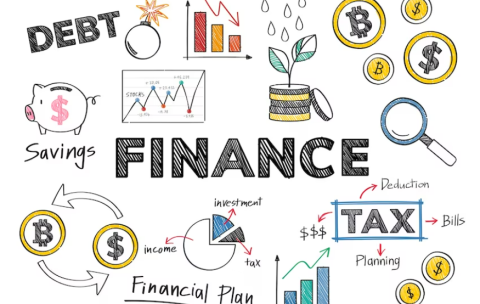Popular Instructors
All Finance and Investment Courses
What you'll learn
Week 1-2: Introduction to Corporate Finance
The role of corporate finance in business
Overview of financial statements and cash flow
Time value of money and financial mathematics
Week 3-4: Capital Budgeting and Investment Decisions
Principles of capital budgeting
Techniques for evaluating investment opportunities (NPV, IRR, Payback Period)
Risk analysis in capital budgeting
Week 5-6: Valuation of Securities
Valuation of stocks and bonds
Cost of capital and its application in valuation
Weighted Average Cost of Capital (WACC)
Week 7-8: Capital Structure and Financing Decisions
Theories of capital structure
Determining optimal capital structure
Leverage and its impact on corporate valuation
Week 9-10: Dividend Policy and Retained Earnings
Theories and determinants of dividend policy
Impact of dividend policy on shareholder value
Share repurchases and stock dividends
Week 11-12: Working Capital Management
Components of working capital
Cash, inventory, and receivables management
Financing of working capital
Week 13-14: Risk Management and Derivatives
Financial risk and risk management techniques
Use of derivatives in corporate finance
Hedging strategies
Week 15: Course Review and Final Assessment
Course Materials and Assessment:
Study Materials: Comprehensive notes, in-depth case studies, video lectures, and essential readings.
Quizzes/Case Studies: Regular quizzes and case studies focusing on practical financial decision-making.
MCQs: Multiple choice questions to test understanding of corporate finance concepts.
Simulations: Financial simulations for real-world experience in corporate finance scenarios.
Final Project: Development of a comprehensive financial analysis or strategy for a real or hypothetical company.
Investment Banking
Investment Banking, a core component of the MBA program, provides …
What you'll learn
Week 1-2: Overview of Investment Banking
Introduction to investment banking
Roles and functions of investment banks
Structure of the investment banking industry
Week 3-4: Equity and Debt Markets
Fundamentals of equity and debt securities
Process of underwriting stocks and bonds
Role of investment banks in IPOs and bond issuances
Week 5-6: Mergers and Acquisitions
Strategies and processes in M&A
Role of investment banks in M&A transactions
Legal and regulatory considerations in M&A
Week 7-8: Asset and Wealth Management
Principles of asset management
Wealth management services
Portfolio management strategies
Week 9-10: Risk Management in Investment Banking
Risk types in investment banking
Risk management tools and techniques
Regulatory aspects of risk management
Week 11-12: Financial Modeling and Valuation
Techniques in financial modeling
Valuation methodologies (DCF, comparables, precedents)
Case studies on company valuation
Week 13-14: Current Trends in Investment Banking
Technological advancements in investment banking
Global market trends and their impact on investment banking
Ethical considerations and ESG (Environmental, Social, Governance) factors
Week 15: Course Review and Final Assessment
Course Materials and Assessment:
Study Materials: Comprehensive lecture notes, case studies, video lectures, and essential readings.
Quizzes/Case Studies: Weekly quizzes and practical case studies for real-world understanding.
MCQs: Multiple choice questions to assess knowledge of investment banking principles and practices.
Simulations: Interactive simulations related to financial modeling and investment strategies.
Final Project: In-depth analysis of a real investment banking case or developing an investment strategy for a hypothetical scenario.
Fintech (Financial Technology)
Fintech, an essential course in the MBA program, focuses on …
What you'll learn
Week 1-2: Introduction to Fintech
Overview of the fintech industry
History and evolution of financial technology
Key players and ecosystems in fintech
Week 3-4: Digital Payments and Currencies
Understanding digital payment systems
Evolution and impact of digital currencies
Mobile payments and wallet technologies
Week 5-6: Blockchain Technology and Cryptocurrencies
Fundamentals of blockchain technology
Cryptocurrencies: Bitcoin, Ethereum, and others
Use cases and implications of blockchain
Week 7-8: Robo-Advising and Algorithmic Trading
Principles of robot-advising in wealth management
Algorithmic and high-frequency trading
Impact of AI and machine learning on trading
Week 9-10: Peer-to-Peer Lending and Crowdfunding
Mechanisms of peer-to-peer lending platforms
Crowdfunding models and platforms
Regulatory and risk considerations
Week 11-12: Insurtech and Regtech
Technology in insurance: trends and innovations
Regulatory technology (Regtech) in finance
Compliance, reporting, and risk management tools
Week 13-14: Future Trends in Fintech
Emerging technologies in fintech (e.g., AI, IoT, big data)
Fintech and financial inclusion
Predictions for the future of financial services
Week 15: Course Review and Final Assessment
Course Materials and Assessment:
Study Materials: Detailed lecture notes, case studies, interactive video lectures, and essential readings.
Quizzes/Case Studies: Regular quizzes and real-world case studies to apply fintech concepts.
MCQs: Multiple choice questions to evaluate understanding of fintech principles and technologies.
Simulations: Financial technology simulations for hands-on experience in a virtual environment.
Final Project: Analysis of a fintech innovation or the development of a fintech business plan.
International Finance
International Finance, an integral part of the MBA program, focuses …
What you'll learn
Week 1-2: Introduction to International Finance
Overview of the global financial environment
The importance of international finance in business
Foreign exchange markets and exchange rate mechanisms
Week 3-4: Foreign Exchange Risk Management
Types of foreign exchange risk
Hedging strategies using forward, futures, options, and swaps
Currency risk management in multinational corporations
Week 5-6: International Financial Markets and Institutions
Overview of international financial markets
Role and functions of international financial institutions (e.g., IMF, World Bank)
Global debt and equity markets
Week 7-8: International Capital Budgeting
Principles of capital budgeting in an international context
Evaluating foreign investment opportunities
Adjusting for political and economic risks
Week 9-10: Financing International Trade
Methods and instruments of international trade financing
Letters of credit, trade finance, and export-import financing
Understanding trade agreements and their financial implications
Week 11-12: Global Portfolio Management
Diversification benefits of international investments
Risks and returns of global portfolios
Asset allocation and international portfolio strategies
Week 13-14: Current Issues in International Finance
Contemporary challenges and trends in international finance
Impact of globalization on financial decision-making
Analysis of current global financial crises and policy responses
Week 15: Course Review and Final Assessment
Course Materials and Assessment:
Study Materials: Comprehensive lecture notes, detailed case studies, video lectures, and essential readings.
Quizzes/Case Studies: Weekly quizzes and real-world case studies for practical understanding of international finance concepts.
MCQs: Multiple choice questions to assess students' grasp of international financial theories and principles.
Simulations: Interactive financial simulations and exercises for experiential learning in a global finance setting.
Final Project: Development of an international financial analysis report, involving foreign investment appraisal, risk analysis, and strategic financial planning.
What you'll learn
Week 1-2: Introduction to Financial Management
Principles of financial management
Role of financial management in business
Overview of the financial environment
Week 3-4: Financial Statement Analysis
Understanding balance sheets, income statements, and cash flow statements
Ratio analysis and financial health assessment
Introduction to financial forecasting
Week 5-6: Time Value of Money and Valuation
Concepts of time value of money
Valuation of bonds and stocks
Capital budgeting techniques
Week 7-8: Risk and Return
Understanding risk and return trade-off
Portfolio theory and diversification
The Capital Asset Pricing Model (CAPM)
Week 9-10: Capital Structure and Dividend Policy
Theories of capital structure
Cost of capital and optimal capital structure
Dividend policy and its implications
Week 11-12: Working Capital Management
Management of current assets and liabilities
Cash, inventory, and receivables management
Short-term financing options
Week 13-14: Derivatives and Risk Management
Introduction to derivatives (options, futures, swaps)
Hedging strategies using derivatives
Corporate risk management
Week 15: Course Review and Final Assessment
Course Materials and Assessment:
Study Materials: Comprehensive lecture notes, case studies, video lectures, and recommended readings.
Quizzes/Case Studies: Weekly quizzes and case studies for practical understanding of financial concepts.
MCQs: Multiple choice questions to assess understanding of key finance theories and principles.
Simulations: Financial simulations and modeling exercises for hands-on experience.
Final Project: Development of a financial analysis report for a real or hypothetical company, incorporating various financial management strategies.
Introduction to Investment Banking
Investment banking is a financial sector that plays a crucial …
What you'll learn
Introduction to the Investment Banking Industry: Familiarize with the role, significance, and structure of investment banks.
Services Provided by Investment Banks: Understand the full spectrum of services, including mergers and acquisitions, underwriting, sales and trading, and asset management.
Regulatory Environment: Learn about the regulatory landscape and how it shapes the operations of investment banks.
Equity and Debt Financing: Gain insights into how companies raise capital through equity and debt, and the role of investment banks in this process.
Mergers and Acquisitions (M&A): Introduce the concepts of M&A and the steps involved in an M&A transaction from both the buy-side and sell-side perspectives.
IPO Process: Understand the stages of an Initial Public Offering, from pre-IPO preparation to post-IPO market performance.
Financial Modeling and Valuation: Get introduced to the basics of financial modeling and valuation techniques used in investment banking.
Risk Management: Learn about the risk factors in investment banking and the tools used to manage and mitigate these risks.
Investment Banking Strategy: Familiarize with the strategic considerations in investment banking, including deal origination and client relationship management.
Career Paths in Investment Banking: Explore the various roles within an investment bank and the career paths available.
Introduction to Financial Planning and Analysis (FP&A)
Financial Planning and Analysis (FP&A) plays a pivotal role in …
What you'll learn
Understanding FP&A: Define FP&A within the context of corporate finance and explain its strategic importance to organizations.
Financial Statement Analysis: Learn to analyze and interpret financial statements for better planning and forecasting.
Budgeting Basics: Grasp the fundamentals of budgeting, including the creation and management of effective budget plans.
Forecasting Techniques: Understand various financial forecasting methods and their applications in FP&A.
Variance Analysis: Learn to perform variance analysis and its significance in the FP&A process.
Capital Budgeting and Investment Appraisal: Introduce concepts like Net Present Value (NPV) and Internal Rate of Return (IRR) for project evaluation.
Working Capital Management: Understand the management of working capital and its impact on a company’s liquidity and profitability.
Financial Modeling: Gain basic insights into creating financial models for scenario analysis and decision-making.
Key Performance Indicators (KPIs): Identify and evaluate KPIs relevant to FP&A activities.
Strategic Planning: Understand how FP&A contributes to long-term strategic planning within an organization.
Introduction to Corporate Finance
Corporate finance plays a central role in managing a company’s …
What you'll learn
Understand the Role of Corporate Finance: Define corporate finance and understand its significance in the corporate structure.
Grasp the Concept of Financial Statements: Learn how to interpret balance sheets, income statements, and cash flow statements.
Identify Sources of Business Financing: Explore various financing options for businesses, including debt, equity, and internal financing.
Assess Investment Decisions with Capital Budgeting: Introduce the principles of capital budgeting and understand different investment appraisal methods.
Learn the Time Value of Money (TVM): Understand the basic principles of TVM and its application in corporate finance.
Understand Risk and Return: Learn how to measure risk and its relationship to expected returns.
Explore the Weighted Average Cost of Capital (WACC): Gain an understanding of how companies assess the cost of capital.
Learn about Dividend Policy: Introduce various theories related to dividend policies and their practical implications.
Valuation of Securities: Learn the basics of valuing stocks and bonds.
Examine the Mergers & Acquisitions (M&A) Process: Provide an overview of the M&A process, including due diligence and valuation.










